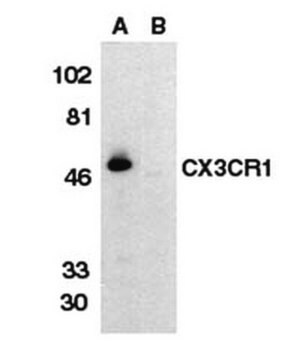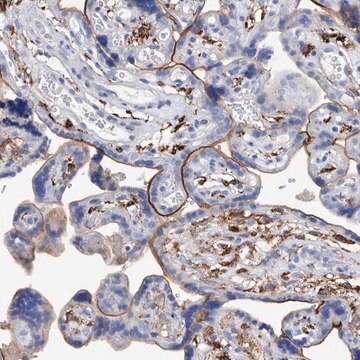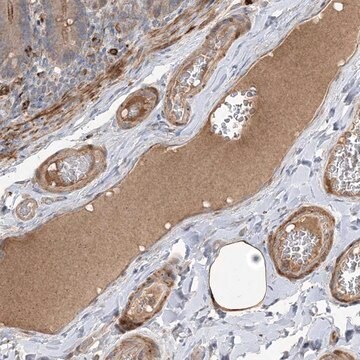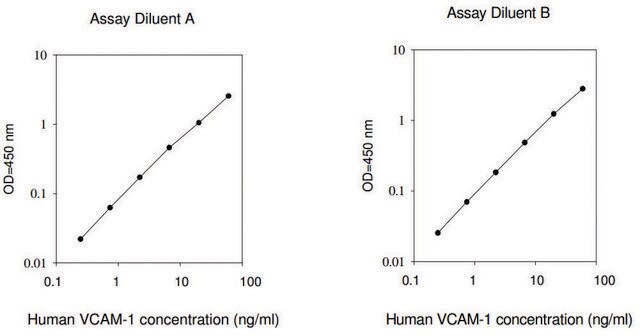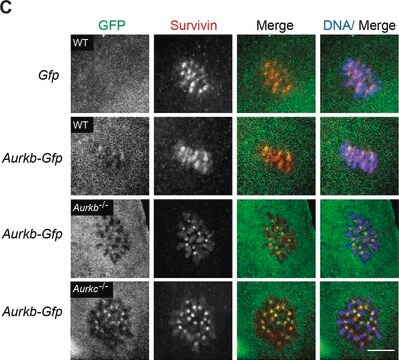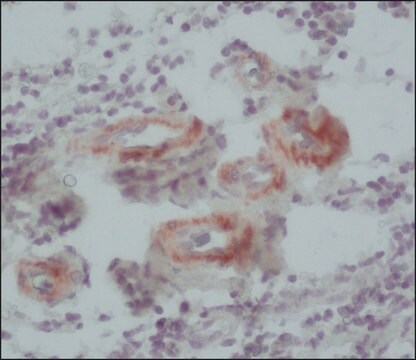おすすめの製品
由来生物
mouse
品質水準
抗体製品の状態
purified antibody
抗体製品タイプ
primary antibodies
クローン
DD/A11, monoclonal
mAbA11, monoclonal
交差性
human, bovine, mouse
交差性(ホモロジーによる予測)
rat
メーカー/製品名
Chemicon®
テクニック
ELISA: suitable
immunocytochemistry: suitable
immunohistochemistry: suitable
western blot: suitable
アイソタイプ
IgG2a
NCBIアクセッション番号
UniProtアクセッション番号
輸送温度
wet ice
ターゲットの翻訳後修飾
glycosylation
遺伝子情報
human ... AGER(177)
詳細
RAGE (Receptor for Advanced Glycosylation End Products) is a 35 kDa cell surface receptor that binds molecules modified by advanced glycation end products (AGEs), an irreversible non-enzymatic reaction occuring from the interaction of proteins and lipids with glucose. The increased expression of RAGE is associated with many disorders, such as diabetic vasculopathy, neuropathy, retinopathy and neuropathy, Alzheimer’s disease and immune/inflammatory reactions of the vessel walls. AGE/RAGE accumulates at sites of vascular disease in diabetes, but blockade of RAGE suppresses development of atherosclerosis and vascular disorders. RAGE binds to amyloid beta, which is overproduced in neurons and vessels in Alzheimer′s disease, and this interaction results in oxidative stress leading to neuronal degeneration.
特異性
RAGE (Receptor for Advanced Glycosylated End Products). The antibody recognizes both natural and recombinant RAGE.
免疫原
Recombinant truncated extracellular part of RAGE produced in E. coli.
アプリケーション
Anti-RAGE Antibody, clone DD/A11 or A11 is an antibody against RAGE for use in ELISA, IC, IH & WB.
Immunohistochemistry:
A previous lot of this antibody was shown to be reactive on paraffin embedded tissue sections.
Immunocytochemistry:
A previous lot was shown to work on cells fixed with ice cold acetone using a Cy3 conjugated secondary antibody.
ELISA:
A previous lot was shown to work on direct ELISA.
Immunoblotting:
Recognizes a band of ~48kDa in bovine lung extract.
Optimal working dilutions must be determined by end user.
A previous lot of this antibody was shown to be reactive on paraffin embedded tissue sections.
Immunocytochemistry:
A previous lot was shown to work on cells fixed with ice cold acetone using a Cy3 conjugated secondary antibody.
ELISA:
A previous lot was shown to work on direct ELISA.
Immunoblotting:
Recognizes a band of ~48kDa in bovine lung extract.
Optimal working dilutions must be determined by end user.
品質
Routinely evaluated by Western Blot on Mouse Brain lysates.
Western Blot:
1:500 dilution of this lot detected RAGE on 10 μg of Mouse Brain lysates.
Western Blot:
1:500 dilution of this lot detected RAGE on 10 μg of Mouse Brain lysates.
ターゲットの説明
48 kDa
物理的形状
Format: Purified
Purified mouse monoclonal IgG2a in buffer containing 0.02 M phosphate buffer, 0.25 M NaCl, and 0.1% sodium azide.
アナリシスノート
Control
Lung tissue, mouse brain lysate.
Lung tissue, mouse brain lysate.
その他情報
Concentration: Please refer to the Certificate of Analysis for the lot-specific concentration.
法的情報
CHEMICON is a registered trademark of Merck KGaA, Darmstadt, Germany
適切な製品が見つかりませんか。
製品選択ツール.をお試しください
保管分類コード
10 - Combustible liquids
WGK
WGK 2
引火点(°F)
Not applicable
引火点(℃)
Not applicable
適用法令
試験研究用途を考慮した関連法令を主に挙げております。化学物質以外については、一部の情報のみ提供しています。 製品を安全かつ合法的に使用することは、使用者の義務です。最新情報により修正される場合があります。WEBの反映には時間を要することがあるため、適宜SDSをご参照ください。
Jan Code
MAB5328:
試験成績書(COA)
製品のロット番号・バッチ番号を入力して、試験成績書(COA) を検索できます。ロット番号・バッチ番号は、製品ラベルに「Lot」または「Batch」に続いて記載されています。
Cardiovascular diabetology in the core of a novel interleukins classification: the bad, the good and the aloof.
Enrique Z Fisman, Michael Motro, Alexander Tenenbaum
Cardiovascular Diabetology null
Rosaria Bassi et al.
Journal of neuro-oncology, 87(1), 23-33 (2007-11-03)
HMGB1 (high mobility group box 1 protein) is a nuclear protein that can also act as an extracellular trigger of inflammation, proliferation and migration, mainly through RAGE (the receptor for advanced glycation end products); HMGB1-RAGE interactions have been found to
Anna Kamynina et al.
Journal of cellular physiology, 236(9), 6496-6506 (2021-02-12)
The receptor for advanced glycation end products (RAGE) is a signal receptor first shown to be activated by advanced glycation end products, but also by a variety of signal molecules, including pathological advanced oxidation protein products and β-amyloid. However, most
Autocrine S100B effects on astrocytes are mediated via RAGE.
Gerald Ponath, Christiane Schettler, Florian Kaestner, Bjorn Voigt, Dennis Wentker et al.
Journal of Neuroimmunology null
Alternatively spliced RAGEv1 inhibits tumorigenesis through suppression of JNK signaling.
Kalea, Anastasia Z, et al.
Cancer Research, 70, 5628-5638 (2010)
ライフサイエンス、有機合成、材料科学、クロマトグラフィー、分析など、あらゆる分野の研究に経験のあるメンバーがおります。.
製品に関するお問い合わせはこちら(テクニカルサービス)